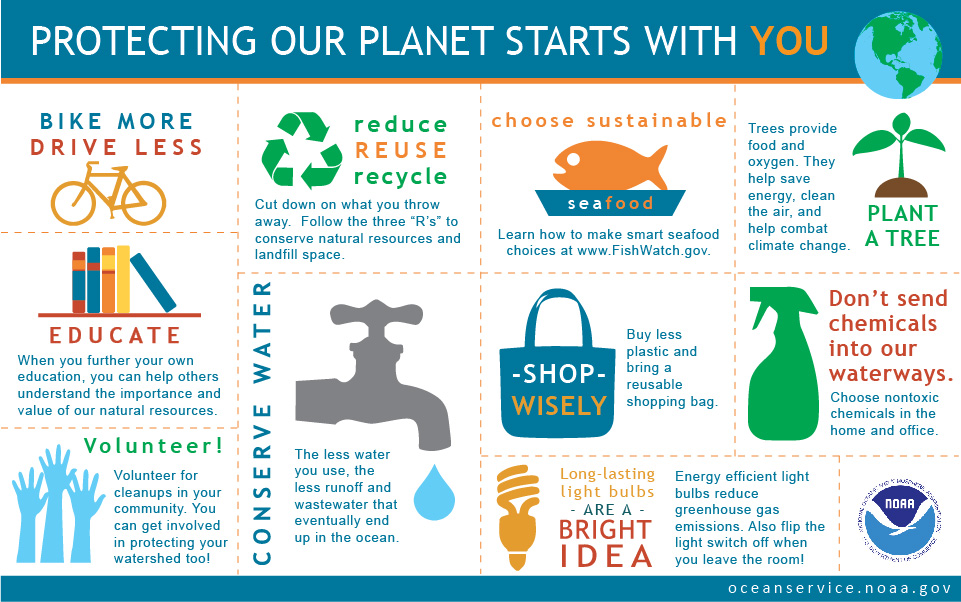Published: April 22, 2024
“I call upon manufacturers and businesses to offer more sustainable products, to reuse materials and reduce the use of raw materials, to adopt effective recycling practices, and to design and build durable projects that are fully recyclable. I also call upon all Americans to learn what is recyclable in their cities and towns, sort waste into the appropriate bins, embrace reusable containers, engage in food composting, and reduce the use of non-recyclable materials, such as many single-use plastics. Everyone has a role to play, and by working together to recycle, we can improve the health of our environment and our world for generations to come.”
The first Earth Day was held in San Francisco in 1970 after Senator Gaylord Nelson of Wisconsin called for teach-ins on college campuses nationwide to raise awareness of environmental issues. The initial focus was on the United States and the negative impacts of 150 years of industrial development. Earth Day 1970 led to the establishment of the Environmental Protection Agency (EPA), and it also indicated the beginning of new environmental laws to start the environmental legislative agenda, including passage of the Clean Air, Clean Water, and the Endangered Species Acts.
In 1990, Earth Day became a global event coordinated by the Earth Day Network . The Earth Day Network’s mission is to diversify, educate, and activate the environmental movement worldwide. This year’s theme, “Planet Vs. Plastics,” underscores the urgent need to address the escalating environmental impact of plastic pollution on our planet. Plastic pollution poses a significant threat as it does not undergo complete biodegradation within the environment. Its presence has been detected in various organisms and ecosystems, spanning from beaches and estuaries to coral reefs and the depths of the ocean. Due to its non-decomposing nature, plastic steadily accumulates in both landfills and the natural environment. (Source: EPA.gov )
There are many ways you can get involved in Earth Day 2024. You can start by educating yourself and others about environmental issues and the legislation in place to protect our planet. Attend an Earth Day event in your community, or organize one yourself to bring people together for the betterment of our planet. You can also make changes in your daily life to reduce your environmental impact. Start by reducing your energy consumption, waste, and water usage. Choose eco-friendly products and packaging, and opt for sustainable transportation options, such as biking or public transit. Another way to promote Earth Day 2024 is to support organizations that work towards environmental conservation and restoration. Donate to a charity, volunteer at a local conservation organization, or participate in a citizen science project to contribute to environmental research. Every action counts, no matter how small it may seem. By working together, we can make a positive impact and create a more sustainable future!
Clean Air Act and Amendments
Clean Air Act*
Clean Air Act Amendments of 1977*
Clean Air Act Amendments of 1990*
77 Stat. 392 - Clean Air Act - December 17, 1963
81 Stat. 485 - Air Quality Act of 1967 - November 21, 1967
84 Stat. 1676 - Clean Air Act Amendments of 1970 – December 31, 1970
91 Stat. 685 - Clean Air Act Amendments of 1977 - August 7, 1977
104 Stat. 2399 - Clean Air Act Amendments of 1990 - November 15, 1990
42 U.S.C. 7401 - Clean Air Act
Clean Water Act and Amendments
Safe Drinking Water Act*
Clean Water Act (Federal Water Pollution Control Act)*
86 Stat. 816 - An Act to amend the Federal Water Pollution Control Act - October 18, 1972
91 Stat.1566 - Federal Water Pollution Control Act Amendments - December 27, 1977
101 Stat. 7 - Water Quality Act of 1987 - February 4, 1987
33 U.S.C. 26 - Water Pollution Prevention and Control
Other Legislation
Endangered Species Act of 1973*
Toxic Substances Control Act - October 11, 1976*
83 Stat. 852 - National Environmental Policy Act of 1969 - January 1, 1970
87 Stat. 884 - Endangered Species Act - December 28, 1973
94 Stat. 2767 - Comprehensive Environmental Response, Compensation, and Liability Act of 1980 (CERCLA) - December 11, 1980
102 Stat. 2779 - Plastic Pollution Control Act of 1987 - October, 28, 1988
*This links to a Statute Compilation, which is a compilation of the public law, as amended, and is an unofficial document and should not be cited as legal evidence of the law. Learn more.
Additional Resources
- EPA Summary of the Clean Air Act - 42 U.S.C. s7401 et seq. (1970)
- EPA Summary of the Clean Water Act - 33 U.S.C. s1251 et seq. (1972)
- EPA History: Earth Day
- EPA resources: Lesson Ideas for Teachers , Homework Resources for Students , and Community Service Project Ideas
- To support the celebration of Earth Day, The U.S. Government Publishing Office offers for sale new and classic official environmental publications that present both scientific and practical information to protect and improve the nation's air, foster the protection of plant and animal species and their habitats, help protect human health, and promote a cleaner and healthier environment for the American people.
